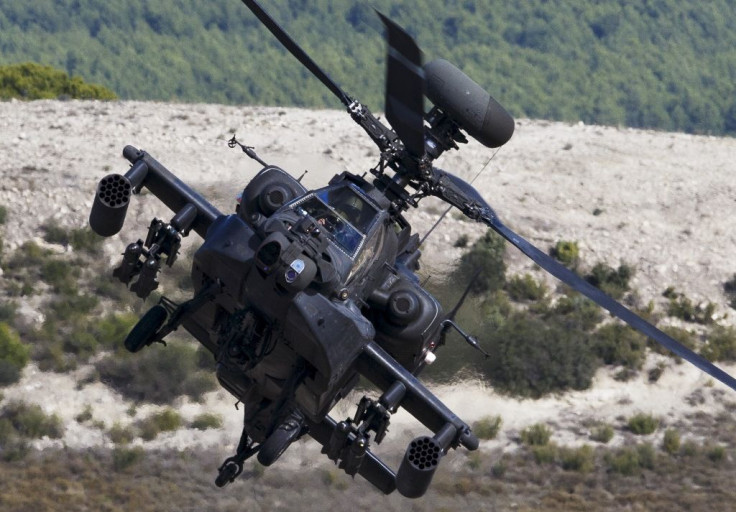North Korea ICBM Threat: 24 Apache Attack Helicopters To Be In Deployed In South Korea Amid Kim Jong Un’s Threat To Test-Launch Ballistic Missile

The United States Forces Korea (USFK) will deploy 24 attack helicopters to South Korea to tackle growing threats from North Korea, according to reports Monday. This comes a day after the reclusive nation blamed the U.S. for Pyongyang’s nuclear and missile tests and threatened to test-launch an intercontinental ballistic missile (ICBM) at any time from any place chosen by Kim Jong Un.
The South Korean defense ministry and USFK said that the AH-64D Apache heavy attack helicopters will be deployed by February to replace the 30 OH-58D Kiowa Warrior observation and light attack choppers.
“The Apache helicopter battalion will be stationed at Camp Humphreys [in Pyeongtaek, about 44 miles south of Seoul], and part of the unit will be temporarily deployed to Suwon Air Base until the new aircraft parking apron is complete at CP Humphreys,” U.S. Army Col. Rob Manning said, according to South Korea's Yonhap News Agency.
“The rotational deployment of the Apache helicopters is a demonstration of strong U.S. will in implementing its security commitments and will significantly strengthen the [South Korea-U.S.] combined defense posture and capabilities,” Manning said.
The Apache battalion is likely to have 360 U.S. soldiers who will replace a similar number of American troops belonging to the OH-58D battalion, Kim Sung-min, director of the U.S. policy division at the South Korean defense ministry, said. The attack choppers have the ability to hit tanks, air-cushion vehicles and special operation units in North Korea, he added.
On Sunday, North Korea’s foreign ministry said that the country developed the ICBM to fortify its self-defense capabilities to counter “the ever more undisguised nuclear war threat from the U.S.,” according to the North’s official Korean Central News Agency.
Furthermore, the ministry said that Pyongyang developed hydrogen bomb and “had access to standardized nuclear warheads by bolstering up its nuclear weapons on a high level at an unimaginably high speed on the strength of self-development” despite the international sanctions.
“The ICBM will be launched anytime and anywhere determined by the supreme headquarters of the DPRK [Democratic People’s Republic of Korea],” the North Korean foreign ministry said.
Earlier in the day, U.S. Defense Secretary Ash Carter vowed to shoot down the North’s ballistic missile and called the Kim Jong Un-led country’s nuclear weapons capabilities and ballistic missile defense programs a “serious threat” to the U.S.
“We only would shoot them down ... if it was threatening, that is if it were coming toward our territory or the territory of our friends and allies,” Carter said.
© Copyright IBTimes 2025. All rights reserved.






















